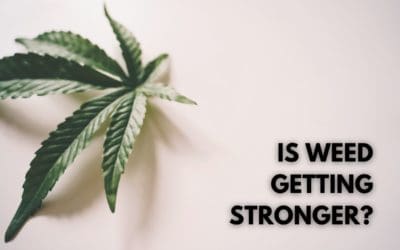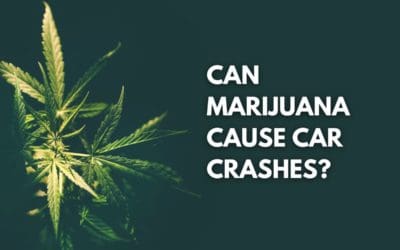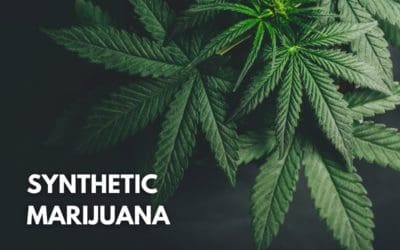According to the National Institute on Drug Abuse (NIDA), marijuana use among young adults was at an all-time high in 2021. The World Health Organization (WHO) states that approximately 147 million people use marijuana, equating to about 2.5% of the world’s population. This is more than the 0.2% who use cocaine or the 0.2% who consume opiate drugs.
While the use of legalized marijuana is becoming a more widely acceptable practice, many people are still developing problems connected to the use of this drug. So, although marijuana addiction treatment may not be necessary for everyone who uses this substance, it is certainly still needful for many.
If you are currently struggling with marijuana abuse, there is hope. Learn more about cannabis use disorder and how we can help treat it here at The Freedom Center.

What is Marijuana?
Marijuana is the term used for the dried stems, seeds, flowers, and leaves of the Cannabis sativa plant. The primary ingredient that causes the desired effects for the users is called THC. THC-based drugs typically cause people to experience intoxicating and mind-altering effects.
Risks of Marijuana Use
Although medical marijuana legalization has made strides, unregulated natural and synthetic marijuana is being sold on the streets and sometimes being laced with other substances. Not knowing what exactly is in the drugs used means not knowing what the side effects could be.
For this reason, there is always a risk when using marijuana purchased illegally. Additionally, unless doctors are well trained in when to prescribe marijuana or other cannabinoids, and how to identify the signs, addiction is still a sincere concern.
Is Marijuana Addictive?
As the medical and recreational use of marijuana becomes more common, a major debate is whether or not marijuana is addictive. Some research suggests that marijuana use can lead to negative results while other experts say differently. Even if marijuana is not an addictive substance, many people consider it to be a “gateway drug”, leading to the abuse of other drugs. In these cases, marijuana abuse is thought to cause other substance use disorders to develop.
Whether or not marijuana addiction is a possibility, some may need help managing their intake of this substance, even if they are using medical cannabis. Although marijuana use does not cause the same type of cravings as substances such as methamphetamine, it is possible to develop an alcohol use disorder or physical dependence.
Similar to alcohol, long-term use can lead to physical changes in the brain that lead to withdrawal symptoms. Additionally, it is not uncommon for people to continue using marijuana even if it has begun to cause negative consequences in their life. In these ways, marijuana is indeed an addictive substance. Fortunately, marijuana addiction can be overcome.
The Effects of Marijuana on the Body
When a person is smoking marijuana, delta-9-tetrahydrocannabinol (THC) quickly passes into the bloodstream. As a result, THC is carried to the organs and brain. When this happens, the drug interacts with the cannabinoid receptors in the brain. The user will then experience a “high”, which is the desired effect among marijuana users. But, despite the pleasurable effects of marijuana, people may exhibit these issues while experiencing the “high” of THC:
- Altered perceptions
- Changes in mood
- Impaired coordination
- Difficulty thinking properly
- Decreased appetite
Continuous marijuana smoking and chronic marijuana use can lead to many undesirable consequences. People who smoke marijuana regularly may have difficulty problem solving, ongoing problems with performance at work or school, issues with their mental health, and even physical health issues, such as heart and lung problems. Some of the complications heavy marijuana users may encounter include:
- Risk of lung infections
- Increased heart rate
- High blood pressure
- Cough and phlegm production
- Immune system damage
For these reasons and more, treatment for marijuana use disorder is undeniably necessary. Thankfully, those who suffer from marijuana addiction can find hope here at The Freedom Center.

Identifying Signs of Marijuana Addiction
Some of the common signs of marijuana addiction include the following:
- Red, bloodshot eyes
- Poor coordination
- Memory problems
- Using marijuana daily
- Getting high before going to work/school/etc.
- Carrying eye drops to hide red/heavy eyes
- Lack of motivation to participate in activities or tend to responsibilities
- Withdrawing from social situations with friends and family
If you have noticed any of these signs in your own life or the life of a loved one who uses marijuana, it may indicate that a marijuana use disorder has developed. If this is the case, it’s critical to seek marijuana addiction treatment immediately.
Marijuana Withdrawal
When a person stops using a drug that they have been using for a while, withdrawal symptoms typically ensue. Marijuana withdrawal symptoms are typically mild. But, even so, withdrawing from marijuana use can be challenging. Here are some of the common withdrawal symptoms people with cannabis use disorder may experience when ending marijuana use:
- Anger
- Insomnia
- Irritability
- Aggression
- Restlessness
- Decreased appetite
- Depressed mood
- Stomach pain
- Headache
- Vomiting
- Nausea
Effects of marijuana withdrawal may also include shakiness and tremors. Some people may experience chills and have difficulty sleeping.
Treatment for Marijuana Addiction
A substance abuse treatment program can provide cannabinoid users with a safe space to overcome drug use and work through the various barriers that could challenge their sobriety. Many marijuana addiction treatment programs may involve marijuana detox services to help ease withdrawal symptoms. Here at The Freedom Center, we use other methods to help people overcome marijuana addiction.
Our treatment for marijuana abuse involves various treatment programs and therapeutic approaches. The substance abuse rehab programs we offer are:
Inpatient Treatment
Inpatient (residential) programs for substance use disorder allow individuals to live at a rehab facility while getting treatment. If you are struggling with marijuana abuse or any other type of drug abuse, a residential program will provide you with around-the-clock access to medical care.
Outpatient Treatment
An outpatient addiction treatment program does not require individuals to live in a rehabilitation facility. But, if you are struggling with marijuana addiction, you can receive intensive care in an outpatient program. Outpatient rehab for substance abuse allows you to get treatment during the week while living at home or in a sober living facility.
Dual Diagnosis Treatment
Many people who suffer from addictions to habit-forming substances also have co-occurring mental health conditions. In cases where people have mental health disorders and substance use problems, dual diagnosis service programs can be helpful. These programs address mental illness and substance abuse simultaneously.

Behavioral Therapy for Marijuana Addiction Treatment
Group Therapy – This type of counseling builds a support system where individuals can share their experiences and explore common struggles. Support groups can help people remain accountable and stay on track throughout their recovery process.
Individual Therapy – This type of therapy provides a safe space to speak openly and honestly about cannabinoid use, identify triggers, and develop coping strategies for relapse prevention.
Cognitive Behavioral Therapy – Also known as CBT, this therapeutic approach can help people struggling with drug and alcohol abuse replace harmful thoughts with positive ones.
Family Therapy – Family counseling can help not just the person with marijuana addiction, but his or her family members as well. It addresses how the individual’s drug use has affected the family unit, identifies enabling behaviors among family members, and resolves conflicts.
Life Skills Development – This type of approach helps people develop tools for a healthy, productive day-to-day life without substance use.
Receive Treatment at The Freedom Center
If you are struggling with marijuana addiction or addiction to other drugs, we can help you here at The Freedom Center. Located in Maryland, our facility helps people break free from drug use problems and find the healing they need to move forward. Whether you are struggling with substance abuse or addiction and a co-occurring mental health challenge, we are here for you.
You don’t have to suffer from marijuana abuse any longer. Contact us today to learn how our services can help you overcome this drug’s intoxicating effects on your life. We are ready to walk with you as you pursue a new way of living!
































